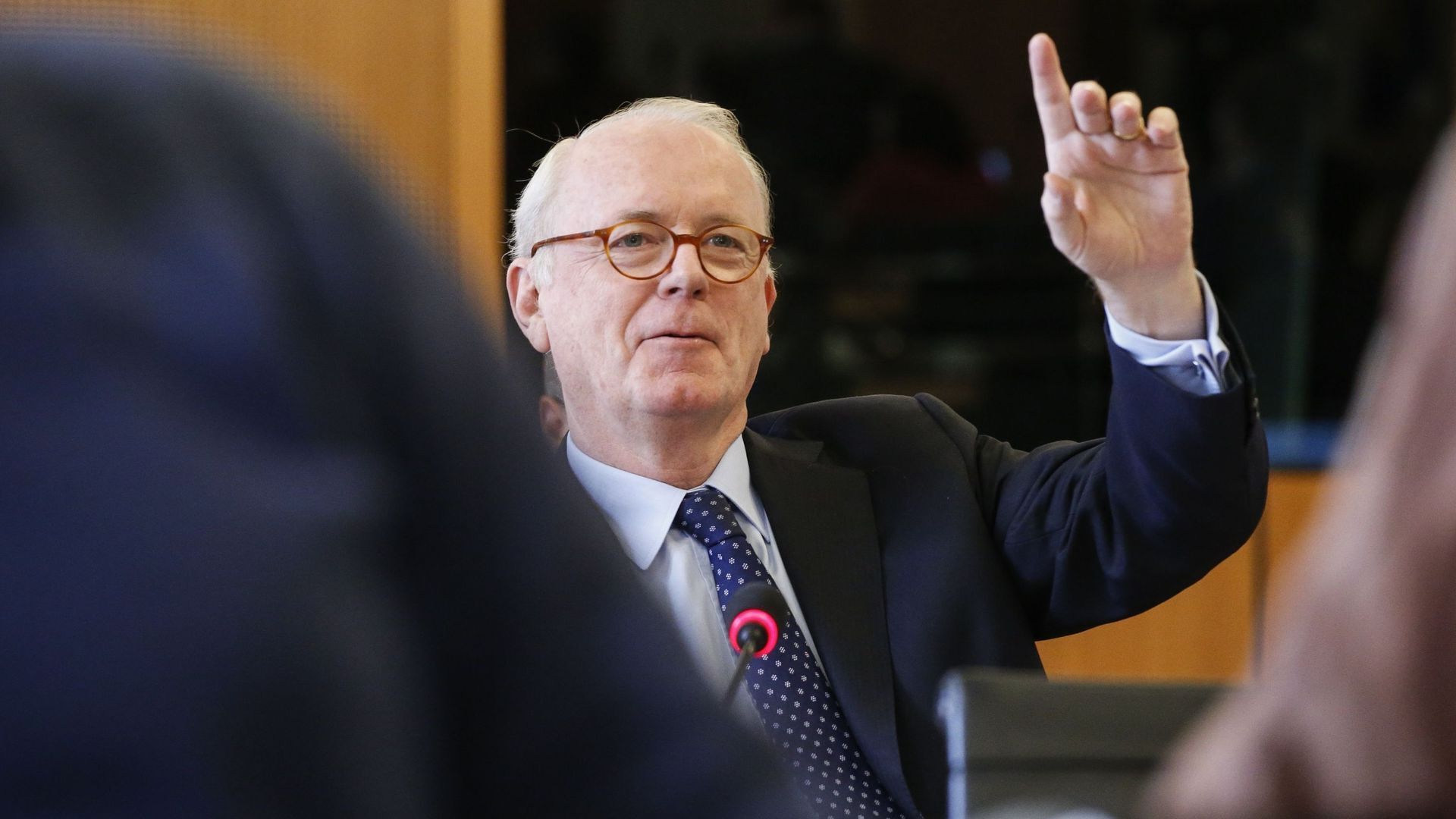
Kazakhgate is a scandal that rocked Kazakhstan in the late 1990s, involving high-level corruption, bribery, and money laundering. At its core, the scandal centers on American businessman James Giffen and his dealings with Kazakhstan's President Nursultan Nazarbayev. Giffen was accused of securing oil contracts for Western companies by paying bribes to top Kazakh officials. The scandal highlighted the deep-rooted corruption within Kazakhstan's government and raised questions about the transparency of international oil deals. Despite the serious charges, Giffen's case concluded with a plea agreement that left many wondering about the true extent of his actions and the involvement of other parties.
What is Kazakhgate?
Kazakhgate is a scandal that rocked Kazakhstan in the late 1990s and early 2000s. It involves allegations of bribery, corruption, and money laundering tied to oil contracts. The main figures in this scandal are Kazakhstan's President Nursultan Nazarbayev and American businessman James Giffen.
-
Definition of Kazakhgate: Kazakhgate refers to the scandal involving James Giffen, an American businessman, and advisor to Kazakhstan's President Nursultan Nazarbayev. The scandal centers on allegations of bribery and corruption related to oil contracts in Kazakhstan.
-
Background of the Scandal: The scandal came to light in the late 1990s when it was discovered that Giffen had secured lucrative oil contracts for Western companies in Kazakhstan. These contracts were allegedly obtained through bribes paid to high-ranking Kazakh officials.
Key Figures and Their Roles
Understanding the main players in Kazakhgate helps to grasp the depth of the scandal. James Giffen and President Nazarbayev are at the heart of this controversy.
-
Charges Against James Giffen: U.S. prosecutors accused Giffen of violating the Foreign Corrupt Practices Act (FCPA) by bribing Kazakh officials, including President Nazarbayev and former Prime Minister Nurlan Balgimbayev. Giffen also faced money laundering charges.
-
Arrest and Charges: Giffen was arrested in 2003 at JFK International Airport in New York while trying to board a plane to Paris. He was carrying a Kazakhstani diplomatic passport, although dual citizenship is not allowed by Kazakh law.
Legal Proceedings and Outcomes
The legal battle surrounding Kazakhgate was complex and drawn out, involving arguments about classified information and international relations.
-
Legal Proceedings: Giffen was charged by the U.S. Attorney's Office of the Southern District of New York with violating the FCPA and money laundering. His lawyers argued that he acted with the U.S. government's full knowledge and approval.
-
Kazakhstan's Response: The Kazakh government officially stated that the charges had nothing to do with their country, as they concerned an American citizen. However, several American attorneys requested that the proceedings be stopped due to the strategic importance of U.S. relations with Kazakhstan.
The Trial and Its Aftermath
The trial of James Giffen brought to light many controversial aspects, including claims of CIA involvement and the strategic importance of Kazakhstan.
-
Trial and Plea: Giffen asserted that he acted with the CIA's approval, which refused to release secret papers related to these activities. His defense claimed that he followed orders from the Kazakh government, which had the right to define legality according to its own views.
-
Plea Agreement: In August 2010, Giffen pleaded guilty to a tax misdemeanor under anti-corruption laws. The other charges, which could have carried a penalty of several decades in prison, were dropped. Mercator Corporation, owned by Giffen, pleaded guilty to one count of making an unlawful payment to a senior government official of Kazakhstan.
-
Case Conclusion: The case concluded in November 2010, with U.S. District Judge William Pauley ordering neither prison time nor a fine for Giffen. The judge had access to classified documents that were not made public during the trial.
Impact on Kazakh Politics
Kazakhgate had significant implications for Kazakh politics, highlighting corruption and the need for transparency.
-
Impact on Kazakh Politics: The scandal highlighted deep-seated corruption within the government and the close ties between high-ranking officials and foreign business interests. It led to increased scrutiny of the government's dealings with foreign companies.
-
Role of James Giffen: Giffen played a crucial role in securing oil contracts for Western companies in Kazakhstan. His influence extended beyond business dealings; he was seen as a key advisor to President Nazarbayev.
Bribery Allegations and CIA Involvement
The bribery allegations and claims of CIA involvement added layers of complexity to the scandal.
-
Bribery Allegations: The bribery allegations centered around Giffen's creation of Swiss bank accounts and transferring $20 million. These funds were allegedly used to pay tuition at exclusive boarding schools for family members of Kazakh officials and to purchase millions of dollars in jewelry.
-
CIA Involvement: Giffen's defense team claimed that he acted with the CIA's approval. This assertion was supported by Giffen's request for access to classified information during his trial. However, the CIA refused to release these documents.
Strategic Importance and International Reactions
Kazakhstan's strategic importance and the international reaction to Kazakhgate underscored the need for transparency in global dealings.
-
Strategic Importance: The scandal highlighted Kazakhstan's strategic importance in international relations. The country's vast oil reserves and geopolitical location made it a crucial player in global energy politics.
-
International Reactions: The scandal received significant international attention, with human rights organizations and watchdog groups calling for greater transparency in the oil industry. It also drew attention to the broader issue of corruption in Central Asia.
Legal and Cultural Consequences
Kazakhgate had both legal and cultural consequences, influencing laws and popular culture.
-
Legal Consequences: While Giffen was not imprisoned or fined, his company, Mercator Corporation, pleaded guilty to a single count of making an unlawful payment. This outcome was seen as a compromise given the complexity of the case.
-
Cultural Impact: The scandal has been referenced in popular culture, including in the film "Syriana," produced by George Clooney. The film loosely based a character on Giffen, highlighting the intrigue and corruption surrounding international oil deals.
Historical Context and Human Rights Implications
The historical context and human rights implications of Kazakhgate provide a deeper understanding of its significance.
-
Historical Context: The scandal occurred during a period of significant political and economic change in Kazakhstan. The country was transitioning from a Soviet republic to an independent state, and the oil industry was emerging as a major driver of the economy.
-
Human Rights Implications: The government's response to the scandal, including the prosecution of opposition figures and the suppression of media outlets, raised concerns about the country's commitment to democratic principles and the rule of law.
Legacy of the Scandal
Kazakhgate's legacy continues to influence Kazakhstan and international business dealings.
- Legacy of the Scandal: Kazakhgate has left a lasting legacy in Kazakhstan and beyond. It serves as a cautionary tale about the dangers of corruption and the importance of transparency in international business dealings. The scandal has also contributed to ongoing efforts to reform the oil industry and strengthen anti-corruption laws in Kazakhstan and other countries.
The Legacy of Kazakhgate
Kazakhgate stands as a stark reminder of the complexities and pitfalls in international business and politics. This scandal, involving James Giffen and Kazakhstan's President Nursultan Nazarbayev, exposed deep-seated corruption and the murky world of oil contracts. It highlighted the strategic importance of Kazakhstan, the influence of foreign business interests, and the role of intelligence agencies like the CIA. Despite Giffen's eventual plea deal and the lack of severe penalties, the case underscored the need for transparency and accountability. The scandal's impact on Kazakh politics, international relations, and human rights continues to resonate. It serves as a cautionary tale about the dangers of unchecked power and the importance of ethical governance. Kazakhgate's legacy is a call for stronger anti-corruption laws and greater scrutiny in global business dealings.
Was this page helpful?
Our commitment to delivering trustworthy and engaging content is at the heart of what we do. Each fact on our site is contributed by real users like you, bringing a wealth of diverse insights and information. To ensure the highest standards of accuracy and reliability, our dedicated editors meticulously review each submission. This process guarantees that the facts we share are not only fascinating but also credible. Trust in our commitment to quality and authenticity as you explore and learn with us.


